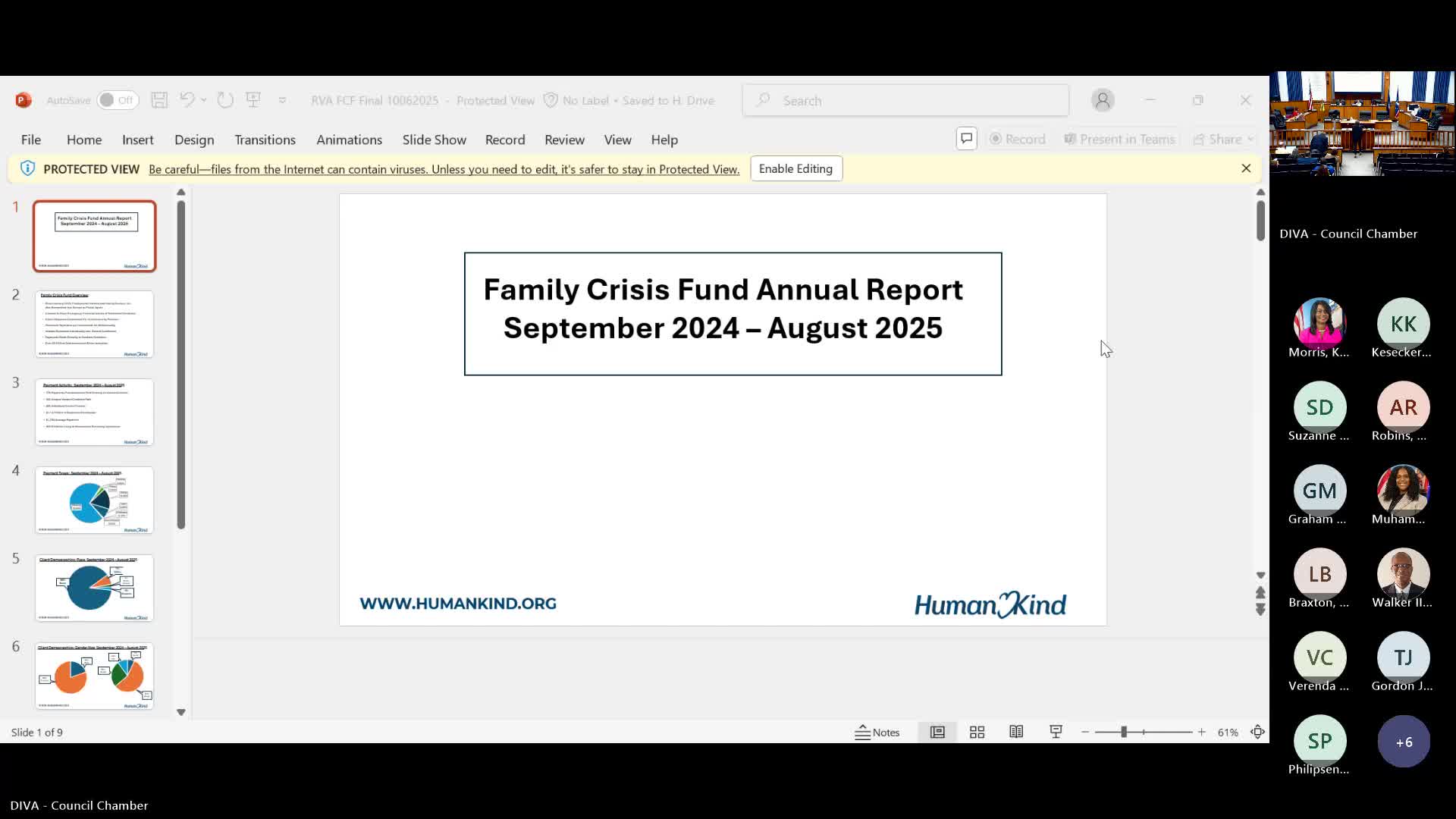Humankind reports $1.14 million distributed in 12‑month cycle for Richmond Family Crisis Fund; housing aid largest share
Get AI-powered insights, summaries, and transcripts
Subscribe
Summary
Humankind, serving as fiscal agent for Richmond’s Family Crisis Fund, told the Education & Human Services Committee it processed 778 payments from September 2024 through August 2025, helping 656 clients with $1,140,000 disbursed; housing accounted for most payments and dollars.
Stan Southworth, president and CEO of Presbyterian Homes and Family Services, doing business as Humankind, presented the Family Crisis Fund annual report to the committee and described the program’s operating rules and outcomes.
Humankind serves as the city’s fiscal agent for the fund. For the 12‑month period from September 2024 through August 2025 the agency reported 778 payments to 303 unique vendors and assistance for 656 clients, with $1,140,000 disbursed and an average payment of about $1,750. Humankind said more than 669 children lived in households that received assistance during that period.
The program pays vendors or creditors directly; payments are not issued to clients. The maximum payment per household is $2,500 within any 365‑day period. Humankind said more than 70 percent of payments by count went to housing needs and that housing accounted for about 85 percent of total funds by dollar value. Utility payments accounted for about 16 percent of payments; other uses included automobile expenses, child care and home repair.
Southworth described intake and partner coordination: community partner agencies perform client intake and case management, bring qualified requests to Humankind, and Humankind validates documentation before issuing payments (Humankind requires vendor W‑9s and issues checks weekly). He said the fund has distributed more than $3 million since its 2023 inception.
Committee members asked about bottlenecks (for example, vendors who do not submit W‑9s), whether applicants are turned away, and how the fund coordinated with a temporary water‑crisis relief addendum the city authorized. Southworth said Humankind has worked to resolve vendor paperwork issues, that geographic eligibility is strictly the City of Richmond, and that water‑crisis payments did not prevent households from accessing Family Crisis Fund support provided the total did not exceed the $2,500 annual limit. He said the water crisis response required an addendum to standard operating procedures and that those funds were expended quickly but allowed the agency to serve a large number of applicants in a short time.
A committee member and other speakers urged stronger outreach and clearer client education about the fund to reduce duplicate applications and make case managers more aware of application criteria. They also urged consideration of funding to support partner agencies’ ongoing case management work so clients can receive follow‑up after a one‑time payment.
